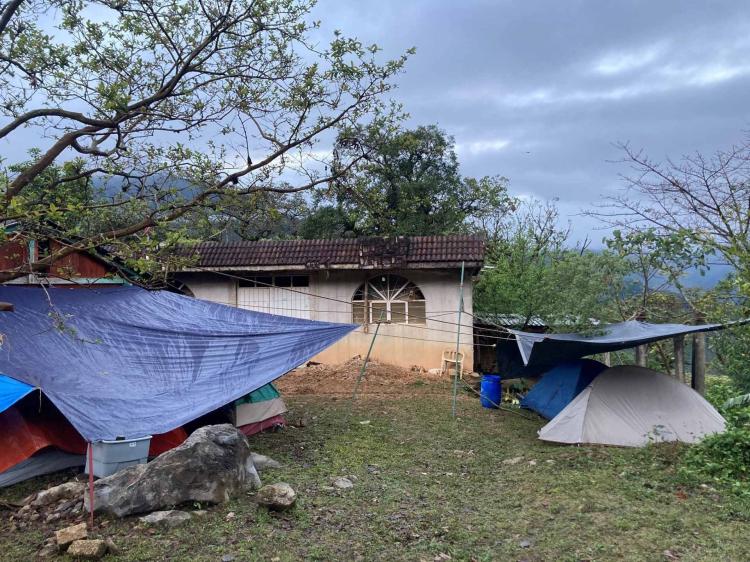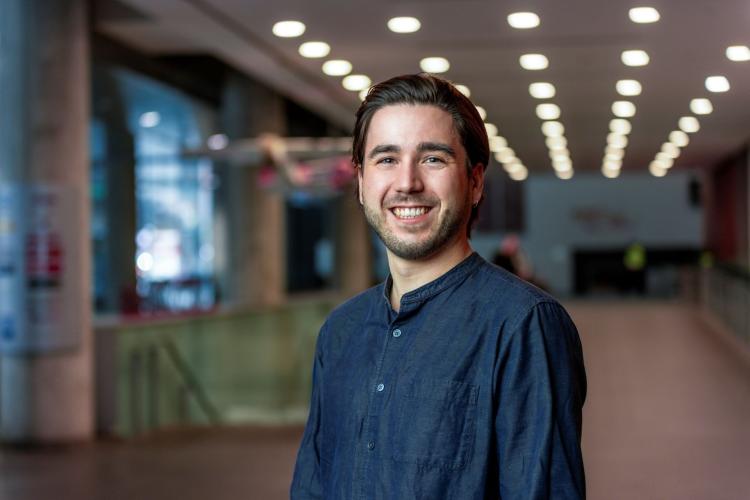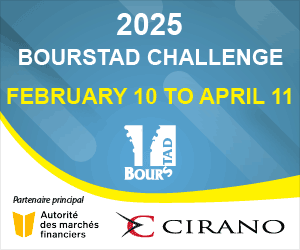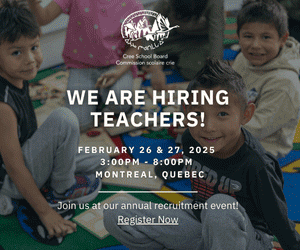Lab-based research is a bedrock of how modern science is practiced, but it cannot account for most experiences humans encounter outside the lab. Likewise, most of these experiences cannot be replicated in a lab setting.
This is especially true in the field of cognitive neuroscience and neuropsychology, where environmental stressors can unexpectedly influence how humans think and react. But by bringing lab-based methods and equipment into the field, a Concordia-led group of researchers hoped to achieve a deeper understanding of what happens to people in difficult environmental circumstances.
In a paper published in the Journal of Environmental Psychology, they describe how they gathered useful data from a group of people living in extreme conditions, as well as the challenges they faced and the lessons they learned. The research was conducted under the supervision of Emily Coffey, an associate professor in the Department of Psychology.
Their subjects were members of an expedition organized by Spéléo Québec that was exploring a cave complex in the Sierra Negra Mountain, about 300 kilometres southeast of Mexico City. The researchers joined them halfway through a three-week mission. The cavers experienced daily physical exertion, isolation and spartan hygiene and sleeping quarters a far cry from the strict parameters involved in orthodox lab work.

The researchers gathered data under conditions very different from their usual lab work
"Lab work is highly controlled and therefore reproducible across hundreds of tests, but it is not going to be very naturalistic," says Hugo Jourde, the paper's lead author and a PhD student at the Coffey Lab: Audition, Sleep & Plasticity. "On the other end of the spectrum are field missions, where you have no control over the environment. We believe there is value in both these approaches."
They hoped their research would document the challenges of performing field-based cognitive science while simultaneously proposing a framework for future studies. They used their Mexico expedition as a case study for empirical support.
"At this point, the main focus was to see what was feasible and what was not," he says.

Getting data is difficult but not impossible
Four researchers joined the seven spelunkers in the second week of a three-week mission in March 2023. The nine men and two women had varying levels of experience caving or climbing and were aged between 27 and 65.
The researchers selected a set of questionnaires, cognitive tasks, physiological measures, equipment readings from heart monitors and body-mounted cameras, and one-on-one interviews to gather their data. They were particularly looking at measures of fatigue, emotional regulation or cognitive performance. They also took sleep measurements on a sub-group of cavers.
Logistical difficulties, time constraints and physical exhaustion forced the researchers to quickly adapt their approach. Despite the small number of subjects and the lack of equipment needed to monitor them all, the overall experience still yielded important results, according to Jourde.
"The focus of this study was to see whether it was possible to gather data in this environment," he emphasizes. "We knew there would not be any statistical power to most of this, but we were able to gather data that was usable."
Jourde says this study will help conduct future research on work in extreme environments, a topic of particular importance to organizations like NASA and the European Space Agency. At the same time, they did gain insights into the relationship between cognitive workload, sleep and workplace safety.
"Caving is an extreme environment, and it teaches us a lot about other dangerous and physically demanding work. People don't have to be taking part in a caving or space expedition; it's for anyone doing a difficult job."
Anita Paas, PhD 24, Arnaud Brignol, Marie-Anick Savard, Zseyvfin Eyqvelle at Concordia and Samuel Bassetto and Giovanni Beltrame from Polytechnique Montreal also contributed to this study.
The Government of Canada's New Frontiers in Research Fund and the Canadian Space Agency provided support for this study.
Read the cited paper: "Beyond the lab: Feasibility of cognitive neuroscience data collection during a speleological expedition."













